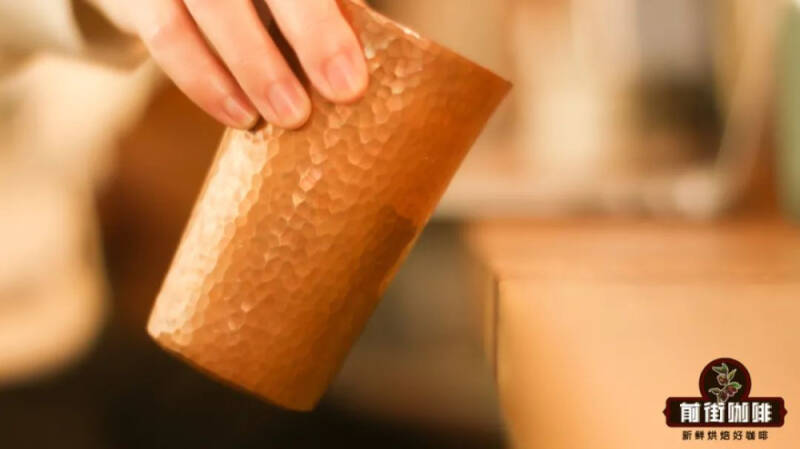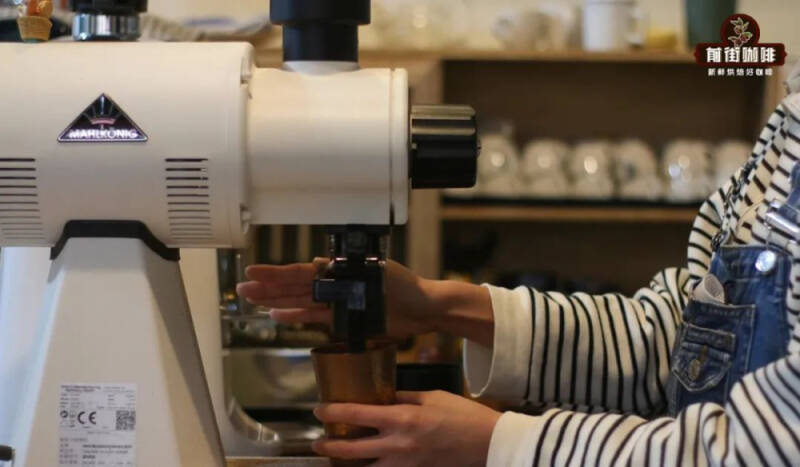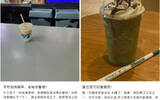Italian style, hand coffee grinding beans when flying powder, sticky powder is it because of static electricity?
"Dang! Dang!"

Recently, guests and friends who visit Qianjie stores can always hear the handsome boy in Qianjie hitting the table with a pink cup filled with coffee powder. Because when he was ready to pour into the coffee powder for brewing, he found that the coffee powder was absorbed on the powder bowl. Then, online friends also raised a lot of similar questions, roughly saying: "recently, when coffee beans are being ground, there will be a lot of coffee powder sticking to the bean grinder, or flying everywhere."

Two situations that don't seem to have much to do with each other actually tell the same thing: coffee powder has recently become "sticky"! Then here comes the problem! Why did this happen?
The reason for the "stickiness" of coffee powder 1. During the grinding of electrostatic coffee beans, coffee particles will constantly rub against each other, and static electricity will be produced after friction, which will make coffee powder attract / repel other objects. Coffee powder can attract each other, can also be adsorbed on other objects! Therefore, most of the scenes of coffee powder adsorbing objects that we see from time to time come from static electricity (so is flying powder). However, the suction of static electricity also has certain controlling factors. Therefore, we do not see the adsorption of coffee powder every time we grind coffee beans.
① grinding is finer: the finer the coffee powder is ground, the easier it is to absorb it together by the suction generated by static electricity. Caked coffee powder is usually due to grinding too fine, through static electricity, coffee powder and coffee powder adsorbed together, forming a block. ② roasting is deeper: when a coffee bean is roasted deeper, it will be lighter and more prone to fine powder than lightly roasted beans under the same grinding. Therefore, deep-baked beans are often the most prone to adsorption after grinding. ③ cold weather: in cold weather, the environment will be drier. When the air humidity is less than 40% for a long time, coffee powder will be more likely to produce static electricity and stronger adsorption. This is why electrostatic adsorption occurs frequently in winter.
Second, oil in addition to static electricity, deep-roasted coffee beans will also have the effect of adsorption because of the spilled oil! When the degree of baking is deep, the oil will spill over the bean surface, and these "oil and water" will make the coffee powder easier to "clump" and agglomerate.
And different adsorption conditions have different solutions!
Coffee powder adsorbed on the bean grinder many bean mill manufacturers will install antistatic tablets at the outlet of the bean mill in order to solve the problem of static electricity among buyers, which greatly reduces the phenomenon of flying coffee powder.
But not every bean grinder will be equipped with such a device, so we can prepare a powder blower, about ten yuan can buy a high-quality air blow! It can help us to blow off the coffee powder adsorbed on the coffee machine!
The coffee powder adsorbed in the powder bowl / cup will be adsorbed even if the coffee powder is blown off the outlet of the bean grinder due to the existence of static electricity. It will be firmly absorbed in the bowl or cup that receives the coffee powder. At this time, we can go back to the beginning, learn from the pretty boy in the front street, slap it, and shake it down. If you want to be gentle, use a small scraper to scrape off the adsorbed coffee powder!
Caked coffee powder finally, it is due to the mutual adsorption between coffee powder, the formation of "coffee powder". A small amount is OK, if there are too many lumps of powder, it will easily lead to a channel effect on the way of extraction (mostly in Italian extraction)! Therefore, we need a cloth powder injection to break it up and reduce the production of adverse extraction factors such as channel effect.
It is said that water can solve the problem of static electricity. Almost all anti-static teaching on the Internet is shared: adding a small amount of water before grinding can solve all the problems of static electricity!
Indeed, it can reduce the generation of static electricity, but this method has a certain risk! If you do not pay attention to, put in too much water, then, it is easy to make coffee powder damp, caking; in addition, long-term use will also make the knife head rust. It can be said that the negative impact of improper control is relatively large! Therefore, Qianjie suggests that if you want to use this method, you must control the amount of water added, and you need to stir evenly, so that the coffee powder will not be dampened and caked!
-END-
Front Street Cafe
No. 10 Baoqian street, Yandun road, Dongshankou, Yuexiu district, Guangzhou, Guangdong province
Important Notice :
前街咖啡 FrontStreet Coffee has moved to new addredd:
FrontStreet Coffee Address: 315,Donghua East Road,GuangZhou
Tel:020 38364473
- Prev

SCA cooperates with the Panamanian government to expand world trade in coffee to Central America
Recently, at the inauguration ceremony held at the Panama Convention Center in Panama City, the Chief Executive Officer and Chairman of the Board of Directors of the Special Coffee Association (SCA) announced a partnership with the Panamanian Coffee Association (SCAP) and the President of the Panamanian Chamber of Commerce, Industry and Agriculture. To promote the 2026 Coffee World Trade Show
- Next

Is it reasonable to ask for a remake when the coffee is not good?
Buy a cup of coffee, get it and find it doesn't taste good. Will you give feedback to the barista and ask for a redo? This is a problem that many people will hesitate to wrestle with. Some people will bravely put forward their opinions and demands, and some people will hold it in their hearts and think that it is just a cup of coffee.
Related
- What grade does Jamaica Blue Mountain No. 1 coffee belong to and how to drink it better? What is the highest grade of Blue Mountain coffee for coffee aristocrats?
- What are the flavor characteristics of the world-famous coffee Blue Mountain No. 1 Golden Mantelin? What are the characteristics of deep-roasted bitter coffee?
- Can I make coffee a second time in an Italian hand-brewed mocha pot? Why can't coffee be brewed several times like tea leaves?
- Hand-brewed coffee flows with a knife and a tornado. How to brew it? What is the proportion of grinding water and water temperature divided into?
- What is the difference between Indonesian Sumatra Mantinin coffee and gold Mantinin? How to distinguish between real and fake golden Mantelin coffee?
- What does bypass mean in coffee? Why can hand-brewed coffee and water make it better?
- Unexpected! Ruixing Telunsu lattes use a smoothie machine to foam milk?!
- % Arabia's first store in Henan opens into the village?! Netizen: Thought it was P's
- Does an authentic standard mocha coffee recipe use chocolate sauce or powder? Mocha Latte/Dirty Coffee/Salty Mocha Coffee Recipe Share!
- What is the difference between Vietnam egg coffee and Norway egg coffee? Hand-brewed single product coffee filter paper filter cloth filter flat solution!

